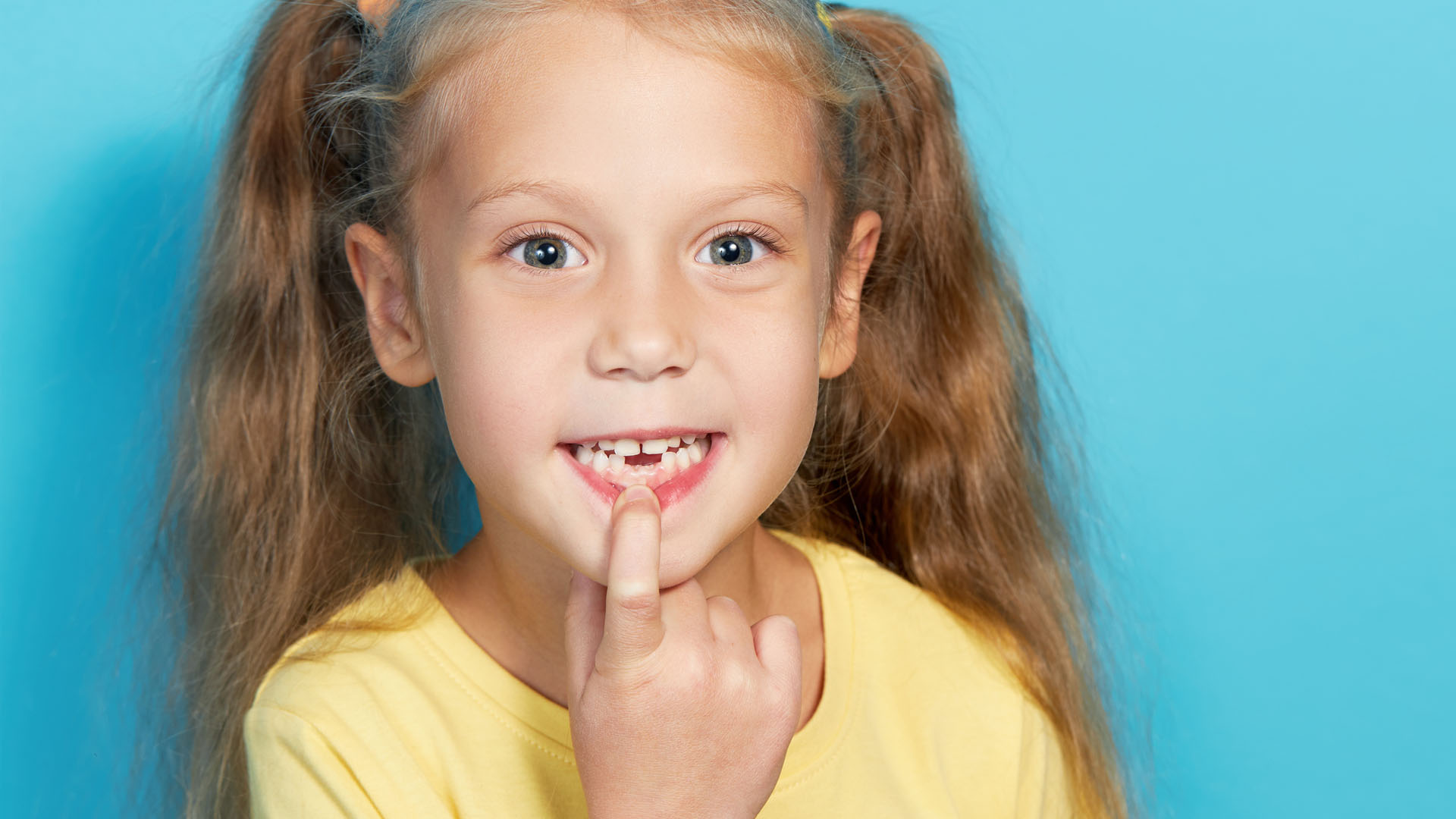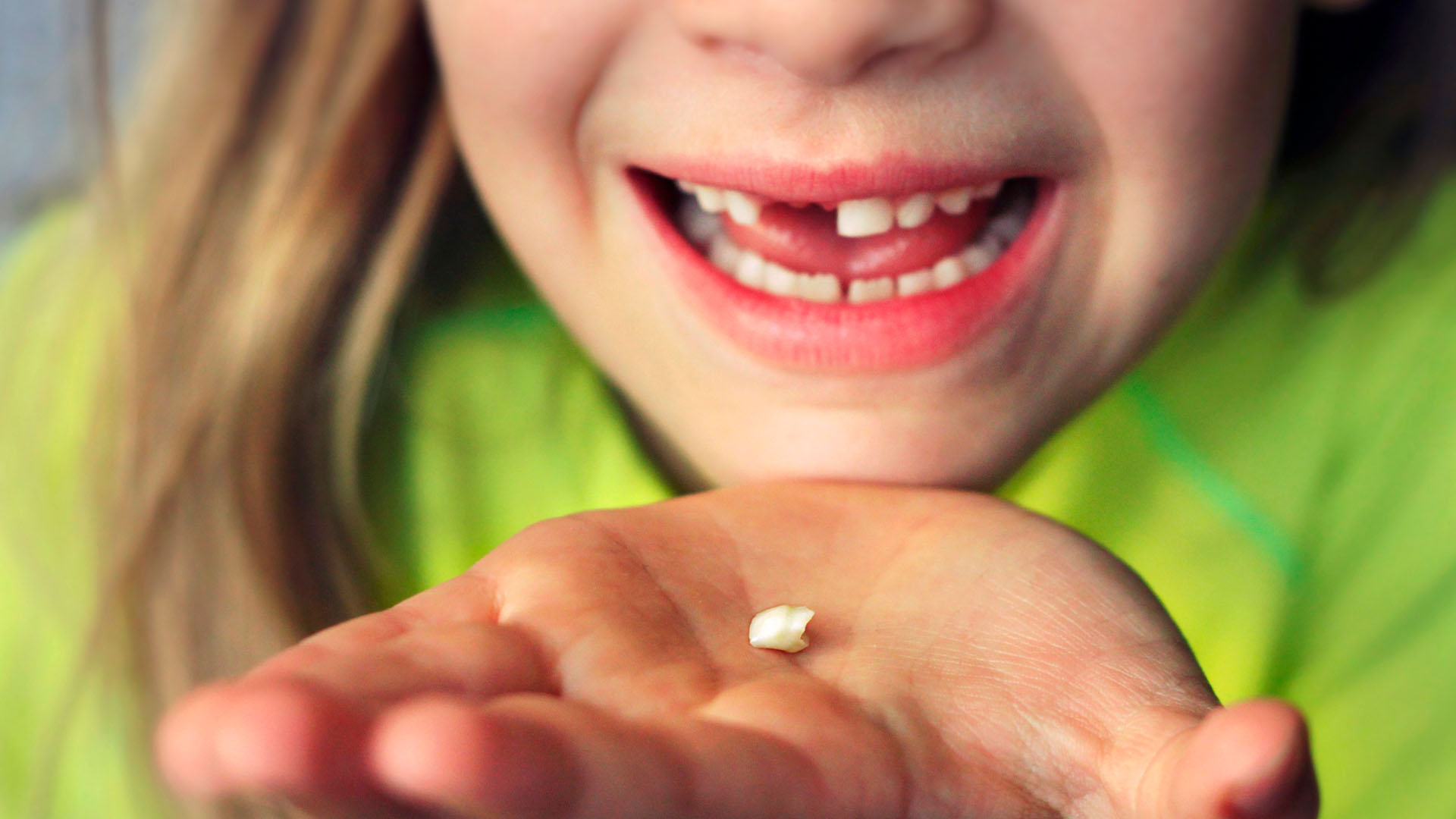Which teeth fall out?
We’ve spoken to experts to find out which teeth fall out, and why you might lose teeth in adulthood

Tooth loss is a common theme for nightmares and horror movies, but it’s actually a normal part of human development that can sometimes be vital for our oral health. We’ve asked two dental surgeons which teeth fall out, in what order, and why you might lose your adult teeth.
In some cases, tooth loss can even be a good thing, when helping to alleviate overcrowding or pain, or to allow for orthodontic treatment to take place. Unfortunately, some tooth loss in adulthood can happen due to mouth trauma, but dental surgeons are excellent at fixing a smile in these instances.
If you’re hoping to get a brighter smile, the best electric toothbrushes are a great place to start for a superior oral care routine. While they may not prevent tooth loss, they can help keep your teeth clean and your mouth healthy.
Which teeth fall out first?
According to Dr. Wendy AuClair Clark, DDS, most tooth development begins at the front of the mouth, with eruptions and losses starting with the incisors.
“Children typically lose their lower front teeth first [incisors], followed by their upper front teeth,” she says. “This order can vary slightly from person to person. For baby teeth, the lower incisors erupt first, then the upper incisors, then the canines, then the molars. Around two years old, children usually have their full complement of primary teeth. The first permanent molar erupts just behind the baby teeth around the age of six.”

AuClair Clark completed her undergraduate training at the University of Georgia, and then earned her doctoral degree from the Marquette University School of Dentistry in Milwaukee. She then earned her master’s degree in clinical dentistry and certificate in post-graduate Prosthodontics from the University of Alabama at Birmingham School of Dentistry.
Research in Pediatrics and Neonatology indicates that low birth weight correlates with a delay in tooth eruption in some babies. With this in mind, the first teeth to appear and the first teeth lost might be later in underweight babies. Another observational study in BMJ Open also found a link between breastfeeding and tooth eruption, with breastfed babies getting their first teeth sooner than babies that were not breastfed. However, since this was an observational study, it can’t establish cause and effect.
Dentist Dr. Richard Marquez also says that the first teeth a baby gets are usually at the front of the mouth. He outlines each stage of development further:
- Stage 1: (0-6 months) Babies are born with a full set of twenty teeth beneath the gums.
- Stage 2: (6 months) The first teeth to erupt are the upper and lower front teeth, the incisors.
- Stage 3: (10-14 months) Primary Molars erupt.
- Stage 4: (16-22 months) Canine teeth (between incisors and molars on top and bottom) will erupt.
- Stage 5: (25-33 months) Large molars erupt.

Marques graduated with distinction from Guy’s, Kings and St Thomas Institute of Dentistry in the United Kingdom. He has special interests in complex restorative, aesthetic and implant dentistry. He also treats gum problems and periodontal disease.
Do adults lose teeth?
Tooth loss in adulthood is something most of us avoid thinking about, but it often happens due to underlying health problems. AuClair Clark explains that the main cases of adult tooth loss can vary. “Adults can lose teeth from dental caries [decay] or periodontal [gum] disease,” she says. “These can be caused or exacerbated by any number of factors, including oral hygiene, systemic conditions or genetics.”
Dr, Marquez also says the top four reasons he sees adult tooth loss in patients are:
- Wisdom teeth that need to be removed
- Premolars removed for braces
- Decayed teeth that need removing
- Gum (periodontal) problems that can cause teeth to get wobbly and either fall out or need to be removed.

Data analysed by the Australian Dental Journal indicates that tooth loss is trending down each decade, with the average number of teeth lost for any reason slightly reduced from data collected in 2004-06 to 2017-18. The findings indicate that instances of tooth loss increase with age, and were higher in groups who were socio-economically disadvantaged.
Underlying cognitive conditions can also impact tooth loss, particularly with diseases like dementia, which impact memory. An article in the Journal of Dental Research indicates that there may be a causal relationship between tooth loss and dementia, with inflammation in the mouth impacting the central nervous system. A review in Gerodontology indicates similar findings over 756 articles, although evidence of this link remains inconclusive.
What are the signs of teething in children?
AuClair Clark outlines signs you should look out for if an infant may be teething. “Signs of teething include excess drooling, putting their hands and other toys and things in their mouth to chew, and being a little fussier than usual,” she explains. “The gums may be slightly red in the area of tooth eruption.”
The FDA also advice on teething, including ways to make your child more comfortable.
Sign up for the Live Science daily newsletter now
Get the world’s most fascinating discoveries delivered straight to your inbox.

Lou Mudge is a health writer based in Bath, United Kingdom for Future PLC. She holds an undergraduate degree in creative writing from Bath Spa University, and her work has appeared in Live Science, Tom's Guide, Fit & Well, Coach, T3, and Tech Radar, among others. She regularly writes about health and fitness-related topics such as air quality, gut health, diet and nutrition and the impacts these things have on our lives.
She has worked for the University of Bath on a chemistry research project and produced a short book in collaboration with the department of education at Bath Spa University.










